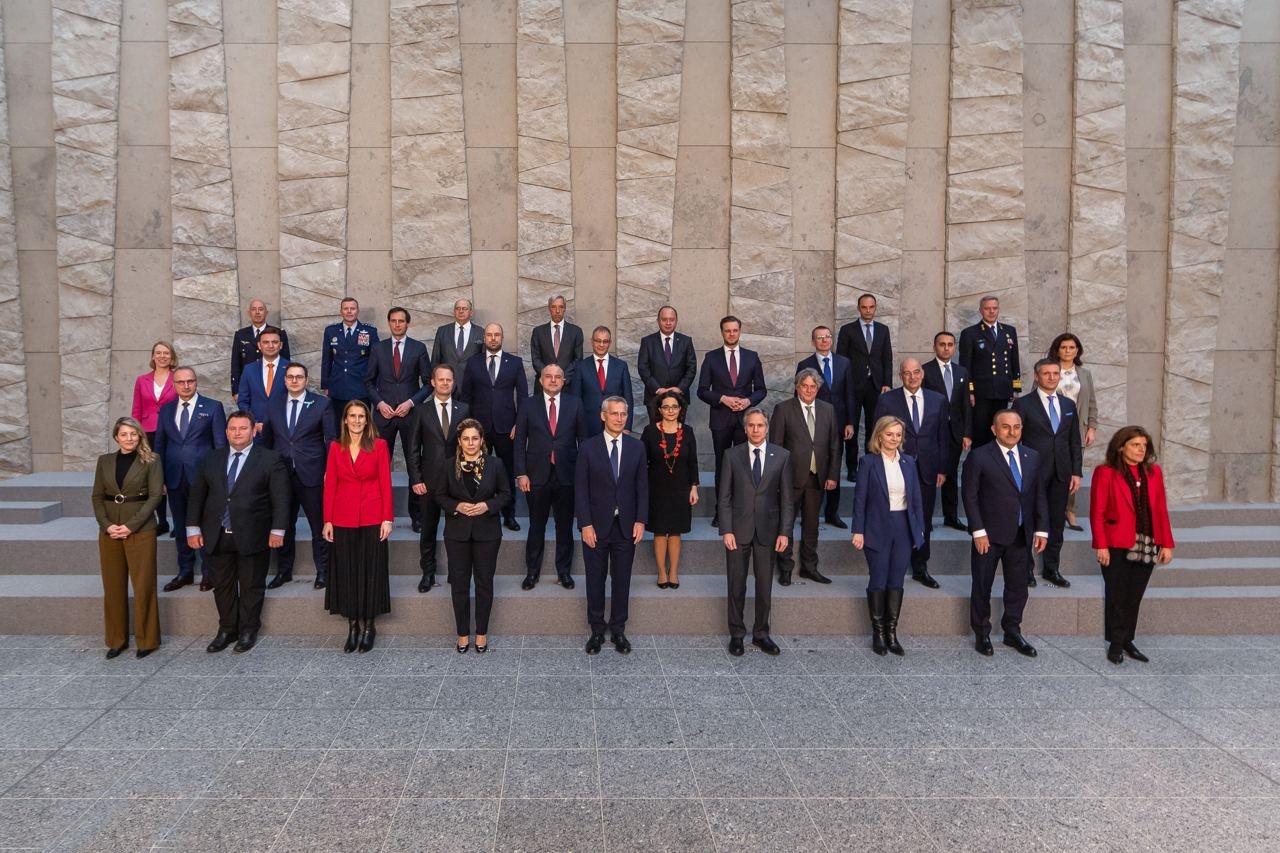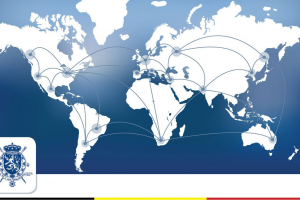NATO ministerial meeting on 6-7 April: conclusions
On Wednesday 6 April and Thursday 7 April, the Deputy Prime Minister and Minister of Foreign Affairs, Sophie Wilmès, participated in an extraordinary NATO ministerial meeting in Brussels. This two-day meeting focused on the ongoing war in Ukraine, the latest developments and the challenges related to that conflict that directly affect the Alliance, especially in the long term.
On Wednesday, the Deputy Prime Minister participated in a working meeting between the three Benelux countries and the three Baltic States. Sophie Wilmès underlined Belgium's renewed commitment to protect Baltic airspace with its fighter planes. This was followed by a working dinner on NATO's strategic concept to be adopted at the next summit in Madrid. Sophie Wilmès: “For Belgium, this document, which gives direction to the Alliance's strategy for the coming years, must take full account of the geopolitical and security developments resulting from Russia's invasion of Ukraine. This will make the exercise relevant. The complementarity between the European Union and NATO must also be taken into account. The adoption of the Strategic Compass and the commitment of Member States to invest more and invest more effectively in defence are heading in that direction.” Referring to the "Women, Peace and Security Agenda," the Deputy Prime Minister stressed that the common values of allies and the protection of the most vulnerable must also be at the heart of the NATO project, especially in light of the atrocities in Bucha.
Finally, Belgium will play an active part in the DIANA initiative, the North Atlantic Defence Innovation Accelerator, with a number of selected R&D centres and an incubator.
On Thursday, the first working meeting took place in the presence of nine partners, including the Minister of Foreign Affairs of Ukraine, Mr Dmytro Kuleba. The four Asia-Pacific partners – Japan, South Korea, Australia and New Zealand – as well as Finland, Sweden, Georgia and the EU High Representative for Foreign Affairs also took part in the meeting. Discussions focused on the impact of the invasion of Ukraine on the global balance of power, and in particular on China's ambiguous role in this conflict. Through its Deputy Prime Minister, Belgium stressed the need to step up efforts on the international stage to convince other nations to emphatically condemn Russia's actions and not leave them without consequences. Sophie Wilmès: “in light of what is currently happening in Ukraine, a failure to clearly denounce this war amounts de facto to siding with the aggressor. What happened at the UN General Assembly in March was unprecedented: a broad coalition of 141 states deplored Russian aggression and called, by means of a resolution, for the withdrawal of Russian troops from Ukraine. This coalition should not only be continued, but expanded. Our diplomatic efforts must also go in that direction, in Africa, Asia and in South America. It is also time for China to abandon ambiguity.”
In the afternoon, a second session limited to the Allies took stock of the support being provided to Ukraine. Belgium supports NATO's current approach of not being a party to the conflict. This should not prevent the Allies from individually providing all necessary support to uphold Ukraine's right to defend itself. Sophie Wilmès expressed Belgium's desire to strengthen assistance to Ukraine: “Our country provides bilateral humanitarian assistance and non-lethal and lethal equipment to Ukraine and wishes to continue this assistance, in the name of the right to self-defence. Through Minister Kuleba, we have heard the needs of the Ukrainians and these are being thoroughly analysed by the Allies. More generally, we also need to adjust and strengthen our deterrent position.” Although Russia's actions call for strong decisions – especially in terms of sanctions – and make dialogue increasingly difficult, Belgium underlined the necessity to avoid breaking off all channels of communication so as to leave room for diplomacy at all times.
NATO has decided to increase its political and practical support to its partner countries Moldova, Georgia and Bosnia and Herzegovina in order to strengthen their resilience.



